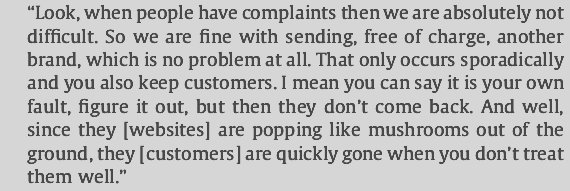Taureau
Administrator
Online pharmacies, generally speaking, have a bad reputation for scamming customers by selling counterfeit goods, or not delivering goods at all. Depending on who you ask, they can be the virtual equivalent of street-level narcotics dealers. But the online market for image and performance enhancing drugs functions very differently from either of these two (more traditional) examples. This may seem intuitive simply by examining the usage habits of someone injecting testosterone (a weekly or bi-weekly shot for 10-12 weeks followed by an off period) versus someone injecting heroin (whenever they run out and can scrape together the cash), or even taking Cialis (“when the mood strikes” according to commercials). But despite the intuitive nature of this observation, a recently published study aimed to further examine and articulate the buyer/seller relationship for IPEDs…and made some interesting and strikingly accurate observations.
If you’re not part of this subculture, it’s unlikely that you’re going to find a more accurate snapshot of these types of relationships in the IPED world; it’s likely the best academic effort in existence, and light years ahead of Pope et al.’s sophomoric and judgmental treatment of the subject matter.
The first is the difference between the standard online drug supplier (an online pharmacy) and the ones making their living in the IPED world. The former are described as predatory in that their customers make purchases believing that they are patronizing a legitimate pharmacy operating legally. Pictures of men in lab coats and sterile environments dominate these types of operations. But in the steroid world, the equivalent website would have pictures of bodybuilders in posing briefs and gyms of dubious hygienic standards.
If you’re not part of this subculture, it’s unlikely that you’re going to find a more accurate snapshot of these types of relationships in the IPED world; it’s likely the best academic effort in existence, and light years ahead of Pope et al.’s sophomoric and judgmental treatment of the subject matter.
The first is the difference between the standard online drug supplier (an online pharmacy) and the ones making their living in the IPED world. The former are described as predatory in that their customers make purchases believing that they are patronizing a legitimate pharmacy operating legally. Pictures of men in lab coats and sterile environments dominate these types of operations. But in the steroid world, the equivalent website would have pictures of bodybuilders in posing briefs and gyms of dubious hygienic standards.


